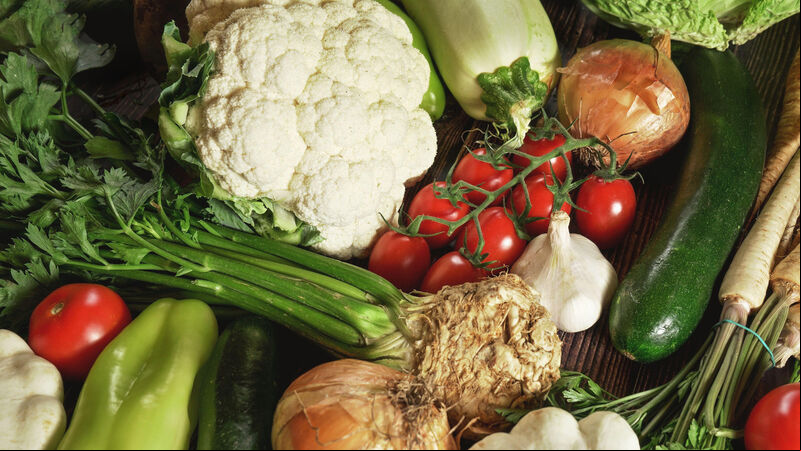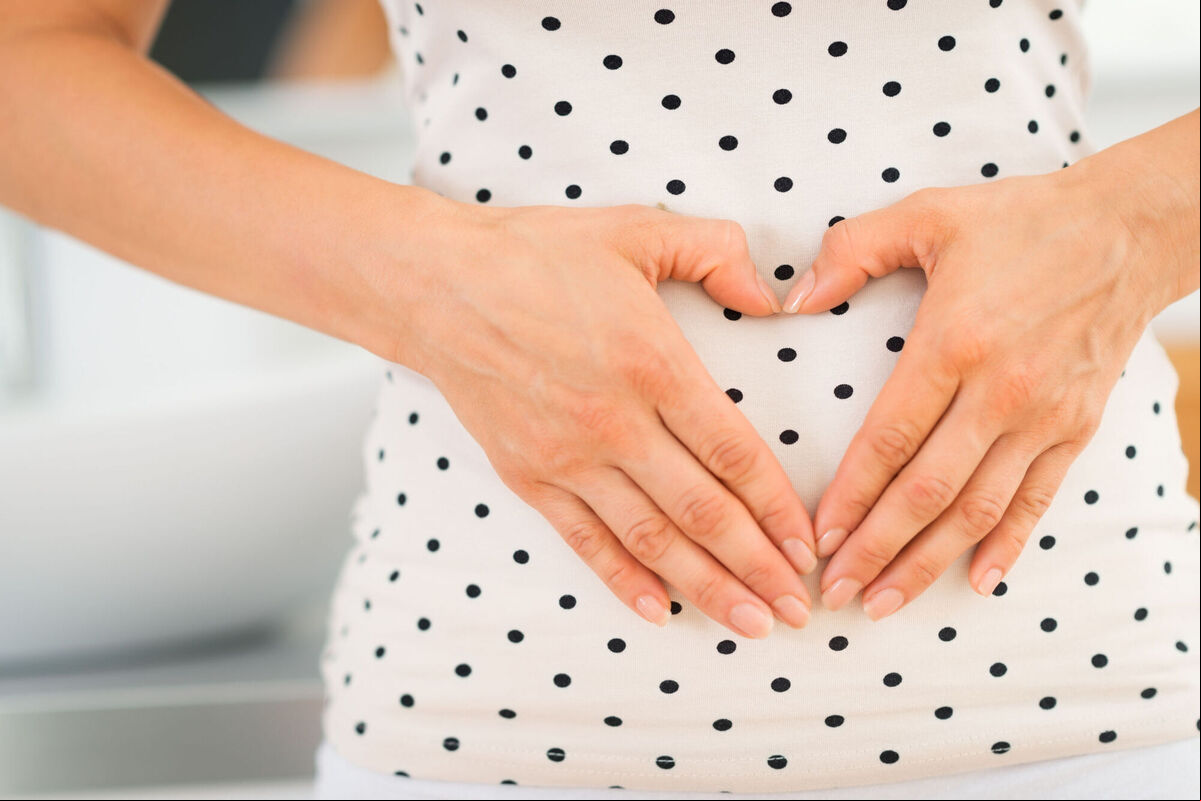WoW! Reset 2024: Create life-long healthy eating habits... starting now

2D3TGF6 Mixed raw vegetables, view from above
JANUARY is as good a time as any to overhaul your nutrition – but only if you are motivated as otherwise you will fall at the first step.
So says Glanmire-based Sinéad O’Flynn, a gut health advocate, nurse and nutritional practitioner. She helps busy people over 35 to overcome weight gain, fatigue, bloating, low mood, insomnia and regain their energy and positive mindset.

“Nature intended very basic principles for us, but we have created very complex health issues out of pushing ourselves too far,” she says.
At the core of what she does is empowering people to understand their health and triggers and how to manage these. But she does it in a simple, straight forward way.
"This is true especially for females, we juggle so much in modern life and we push that self-care further and further away all the time,” she said.
She points out that self-care is a priority, not selfish behaviour:
Any guilt associated with over-doing it with food and drink over Christmas must immediately be put to one side, she says.
"My mantra to my own clients on a typical week, not to mind Christmas, is to leave that guilt aside.
People who were disciplined with their health before Christmas need to how they felt when they were eating the right foods for them, exercising and managing that self-care.
“I always advise my clients to keep a record of how they feel at their worst, what were those symptoms, what impact it had on their life, what tools worked, how it helped them, and how they feel now when they are back on track. With this list, when discipline wains, it serves as a reminder how to get back on and it usually happens quite quickly,” she says.
And for those beginning on their journey, the initial step is usually the hardest part.
“It becomes much easier once you start implementing a plan for yourself, you start to feel better, your motivation increases and you reap the rewards,” she says.
One of Sinead’s biggest bug bears is counting.
“It’s good to have a baseline, but I don’t believe in weighing yourself or counting calories, this creates a negative aspect where people set themselves up to fail all the time. You don’t need a scales to tell you, you have gained or lost weight, you will already feel this in your clothes and that is the best indicator to watch out for.

So where do you start?
“Small steps! Rome wasn’t built in a day, and you certainly won’t master this overnight. This is a lifelong habit you need for your health and not a fad or something you stop doing after a period of time.
“I am a firm believer in nature. Nature is basic and very powerful, its main role is to protect us at all costs. Your body needs nutrition to survive, some examples to help you to start:
• Reduce caffeine and sugar intake as it upsets blood sugar balance and this affects hormone levels.
• Eating regular meals which keep you full will help to keep your blood sugar levels balanced, in turn keeping your gut, hormones and sleep ed.
• Keep your gut health in check by drinking 2.5 litres of water daily, eat seven portions of fruit and vegetables daily (your fist is one portion size). Increase this by using soups and smoothies. You can batch cook soups and freeze them and make large jugs of smoothies which allow for nutritious meals with easy access when things get busy.
Keeping blood sugar levels balanced are especially important for women going through hormonal changes as spiking will exacerbate perimenopause/menopause symptoms, she says.
Eating foods rich in Omega 3 (salmon, tuna, mackerel), avocado, walnuts, chia seeds, flaxseeds, soybean, sweet potato, quinoa and complex carbohydrates such as wholemeal (in place of white) breads, pastas, rice will help. your hormones with phytoestrogens food sources, found in flaxseeds, soybeans, edamame, sesame seeds, garlic, berries, tofu and cruciferous vegetables.

“If you are experiencing symptoms like bloating or heartburn, it’s your body trying to tell you it needs help. Keeping a diary of your foods and symptoms can help to identify causes, equally working with a nutritional practitioner like myself can help you to identify the root cause of these symptoms. If the bloating continues for no apparent reason, you may require further investigations and your practitioner will guide you in this. Red flags are important to have investigated and equally not all symptoms require invasive testing, seeking advice is important,” she advises.
Getting the basic right when it comes to sleep and exercise shouldn’t be underestimated either.
“Sleep is a very important factor in managing your health and massively affects your motivation and determination levels. Sleep deprivation is a form of torture and anyone who has difficulty with sleep understands this only too well,” says Sinead.
Sleep before midnight is the most beneficial, so ensuring we have lights turned down hours before bed time so melatonin starts to produce naturally will really enhance the quality of sleep.
“Bright lights from devices, including TV, really should be reduced a few hours before bedtime, do some deep breathing/meditation instead or read a book, and don’t fall asleep watching TV if you have one in your bedroom. When you don’t have good quality sleep, you wake unrefreshed and will spend your day looking for pick-me-ups with sugar and caffeine, all the foods which will trigger that spike in blood sugar and will create a fight or flight response in your nervous system throwing you into a wheel that you feel you can’t get off.” It's the same with exercise: getting it into your daily routine will boost serotonin levels.
“In the morning, have your tea/coffee while walking around barefoot on the grass for a few minutes, this is a really effective way to ground yourself; or even try parking the car further away and walking to the shop/office.” Fasting also has benefits, she says.
“Today’s world can make this difficult, so I always advise to do the best you can with the logistics that your life allows – without using them as an excuse of course! The important thing is to allow your gut a period of fasting of minimum 14/15hrs a night. That probably shocks a lot of people and I get that, however it’s important to understand that life and society has evolved but humans have not evolved from when we came from apes, and this is why our bodies struggle so much with the demands of modern life.”
Her parting advice is this: “Sit back and think about the demands we expect of our body and give yourself a break and accept that you can’t do it all.
“Try your best, with what you can do but most importantly be informed.” • Sinead has developed an Ebook of recipes for readers to help get started. See it here.
Sinéad O Flynn at [email protected]









 App?
App?


